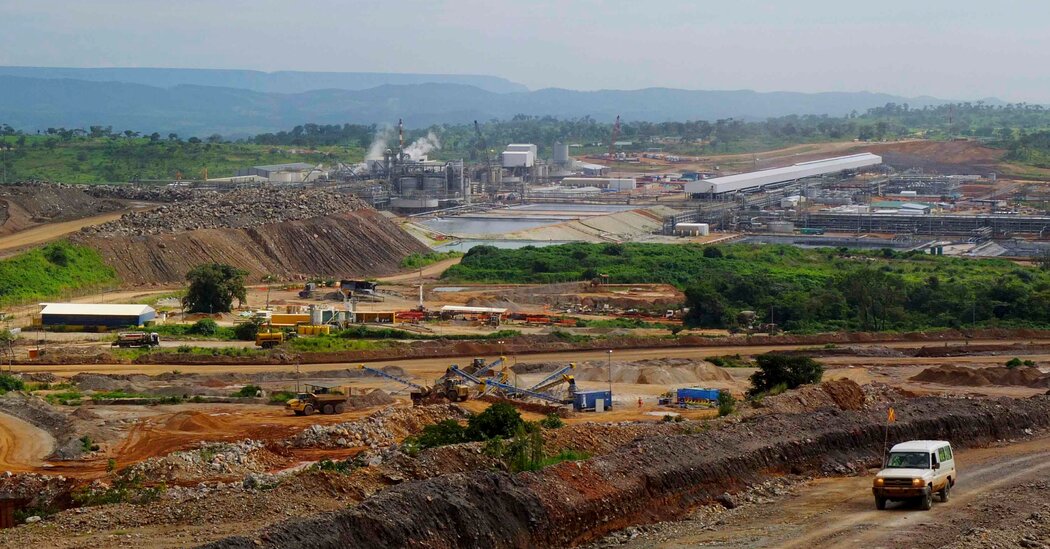A court in the Democratic Republic of Congo has sidelined the Chinese owner of one of the world’s largest copper and cobalt mines, a major victory for the Congolese government seeking to become a bigger player in the global clean energy revolution.
The ruling, which dismisses the mine’s Chinese leadership for at least six months, stems from a dispute over billions of dollars in payments owed by the Congolese government to its Chinese owner, China Molybdenum.
Backed by funding from the Chinese government, the company purchased the Tenke Fungurume mine from an Arizona mining company in 2016. The mine plays a prominent role in the Chinese government’s attempt to dominate key supply chains for minerals and metals needed to produce batteries for electric vehicles.
Cobalt is essential for electric vehicles because it increases the range of the battery. It is now trading at its highest point in three years.
The New York Times reported in November that workers at the mine had complained of a dramatic decline in the safety of workers under Chinese ownership, including claims by safety inspectors that workers had been attacked after expressing concerns and offering kickbacks to cover up accidents. . The company disputed those claims, suggesting they were part of a broader effort to discredit it.
Congolese President Felix Tshisekedi last year called on a commission to investigate allegations that China Molybdenum defrauded the Congolese government with royalty payments from the mine. The legal action on Monday, by the Lubumbashi Commercial Court, came after the country’s state mining company requested the removal of Chinese management from the mine.
The court ruling, reviewed by The Times, leaves an outside manager in charge of the mine for at least six months while auditors evaluate the allegations against the company. The state mining company known as Gécamines claims China Molybdenum has failed to declare hundreds of thousands of tons of copper and cobalt reserves buried at the site, saving the agency from making significant annual payments when new reserves are found and verified. .
During the reporting period, Gécamines will maintain its 20 percent share of the mine, which in 2020 was the world’s second largest source of cobalt. Congo produced 70 percent of the world’s cobalt last year.
President Tshisekedi’s office declined to comment on the ruling Monday. China Molybdenum has not responded to a request for comment but has denied in the past that it withheld reserves or owed additional royalties.
Congo has a history of threatened legal action against foreign mining companies; in some cases, the threats were resolved when the companies made payments to government officials, a process some mining executives described as a shakedown.
In this case, executives from both Gécamines and the mine have told The Times that the claims against China Molybdenum are based on legitimate concerns about its operations and a belief that the company has improperly concealed information.
The court on Monday appointed Sage Ngoie, a Congolese engineer who until recently worked as a project manager at the mine, as the new temporary mine manager.
dr. Ngoie spent two years at Tenke overseeing waste management and other key engineering duties and was recently appointed to a new management position. In a telephone interview, he said he was unwilling to describe changes he could make to the mine, one of the largest employers in Congo, with more than 7,000 employees and contractors.
According to the ruling, the court ordered Dr. Ngoie was “entrusted with the task of reconciling the two partners on a variety of issues”, including “access to technical information and determining the parties’ rights to the mining reserves”. It also gave him the authority to make decisions regarding mining operations and the sale of copper and cobalt. Currently, a vast majority of the mine’s cobalt is exported to China.
Congolese government officials are investigating contracts signed with China-backed mining companies following complaints of unfulfilled promises to Congo, a country trying to regain its economic position after a devastating civil war and years of corrupt leadership. As of 2020, China-backed companies owned or had a financial interest in 15 of Congo’s 19 cobalt-producing mines.
Mr Tshisekedi has said that too much of the profits from the country’s metals and minerals – which are increasingly demanded as the world gets rid of fossil fuels – does not benefit Congolese people.
US officials have separately sounded the alarm that China could control the cobalt supply chain and drive up battery prices, a prospect that is troubling automakers that have pledged to phase out their internal combustion engine fleet in the coming years.
“China has sort of a stranglehold on the supply chain,” said Tiffin Caverly, vice president at the United States Export-Import Bank, which held a hearing last week on metals needed for renewable energy and military applications. “Unfortunately, I have to say that I don’t have an answer on how to break that supply chain advantage that China has built up. Other than that, it’s definitely a problem.”
Biden government officials have been looking for ways to strengthen ties with Congo and access critical resources such as cobalt. In February, a delegation of White House officials flew to Kinshasa, the capital, to meet with Mr. Tshisekedi and other top officials. The US government supports the review of mining contracts in Congo as part of an effort to tackle corruption.

